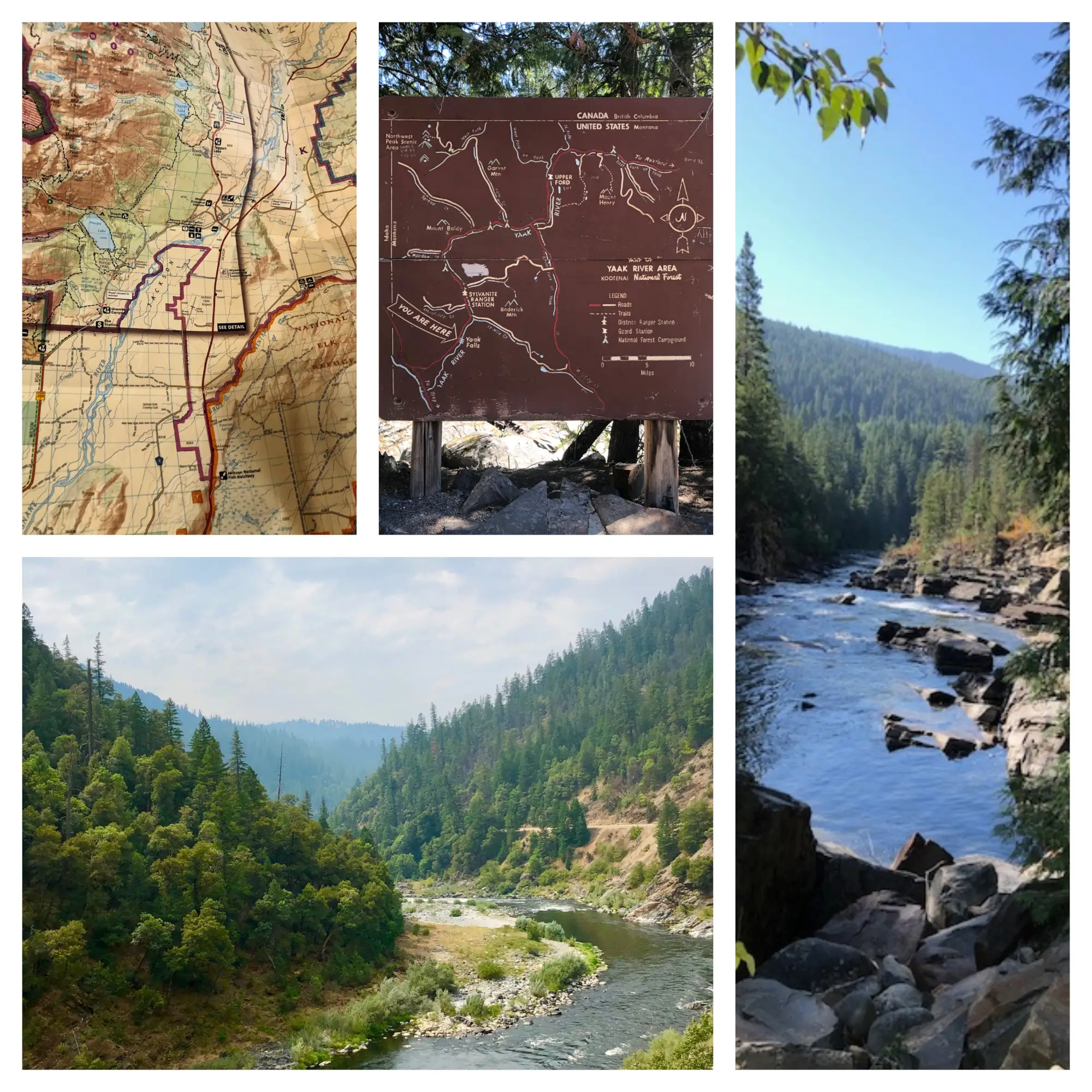
My husband and I just got back from a two-week motorcycle trip, riding the backroads of some of the most beautiful states in our country: California, Oregon, Idaho, Montana, Wyoming and Utah. With plenty of seat time to think, I discovered four unexpected leadership lessons that seem particularly relevant as we are preparing for life in the Next Normal. This is lesson #2. Links to previous lessons can be found at the bottom of this post.
Like most motorcyclists, we did everything we could on this trip to find interesting roads to ride. That translated into very few interstates and plenty of county roads, national park drives, historic routes, mountain passes, farm cut-throughs and the occasional local blacktop.
That also meant we were often without internet access or cell service. Our phones were of little use to us in the more out-of-the-way places. Instead, we had to navigate the good old-fashioned way – using maps, a few faded road signs, or the guidance of a friendly local.
I hadn't used true wayfinding skills in years, but now had to hone them quickly or risk getting lost, which happened more than once.

Leadership lesson: We grow most when we're challenged
Frankly, I was pretty comfortable relying on GPS and wasn't that crazy about having to lean into some different ways of thinking and doing on this trip. It took extra time and effort to figure out where we were and how to get where we wanted to go.
These instances made me think about the many conversations I have had this year with clients who, in their frustration with the pandemic, have voiced some wistfulness about not being able to rely upon their natural strengths as a leader. They counted on owning the room to get things done, the power of their personality to win a client, or walking into someone's office to find out what they wanted to know.
Like any good coach, and much to their chagrin, I suggested that perhaps this is a great opportunity to develop some new leadership skills.
We grow most when we have to, not when things are going along just fine. It's human nature to develop ways of doing things that work for us and then make them our go-to behaviors. However, when we find ourselves in unfamiliar territory, this strategy often fails us.
I remember in the years I was building my agency that I liked being good at what I was good at. Yet my company grew the most when I stepped out of my comfort zone to learn new things, expand my knowledge and develop greater leadership capabilities.
Chances are, like me, you've been relying too much for too long on certain practices, people or patterns that are less useful to you in these uncertain times – and probably won't be that effective in the Next Normal. Many of the old ways of leading are gone. Time to take some steps to expand your skills and grow.

When a strength can become a weakness
That's not to say you don't have specific skills or strengths that you must continue using, perhaps even more so going forward. Every successful leader is "spiky," possessing a few exceptional capabilities. We are at our best when we use these for a good outcome.
The problem comes when we lean too heavily on those strengths and end up overusing them. Not only can our behavior become extreme, but we can become blind to the consequences that result from our dependency.
For example:
This begs two questions all of us should be asking ourselves:
Here are a few practical steps you can take to figure out what you need to work on – and how to tackle it – in order to increase your leadership effectiveness in the Next Normal.
Ask for some feedback
The best place to start is by doing a self-assessment (You can find one of my free leadership resources here). But you quickly need to secure the perspectives of others to broaden your thinking. Ask coworkers what you overdo. Better yet, conduct a simple survey consisting of just three questions:
Strive for more balance
Once you've secured some feedback, make a list of the things you should do less often and identify at least one benefit that could come from toning down each of those behaviors. For example:
This will help you shift your mindset to see the positives of rolling up your sleeves to create a little more balance in your leadership.
Close the gap
Once you've picked one or two things to work on, put it in writing. Neuroscience research has shown that when we write a goal down, we're far more likely to achieve it. The writing process helps to encode the goal in our brains and increases our determination to achieve it.
Once you commit to the goal, break it down into bite-sized pieces so you can see the path forward. The best approach I've seen and that I use with my clients is to create a detailed action plan with specific strategies and action steps to reach the goal. Working with a coach or consultant will also give you a better chance of success through an increased sense of accountability and support when your commitment wanes.
Finally, give yourself a timeline so you'll feel positive pressure to keep at it and really close the gap. For example, "Before January 1, 2021, I will develop a robust decision-making process that will help me be more decisive when it matters most."
Focus on what only you can do and give the rest away.
To make more time to develop new skills, you need to stop doing things other people can also do and concentrate on those things that only you can do by virtue of your institutional knowledge or role. You'll have a bigger impact on your business when you do.
To do that, you must intentionally share power, decision-making authority and opportunity with your trusted leaders.
Not sure what to delegate? Start by making a list of things you're doing that others could do. Think about who on your team could take this on as an opportunity to grow or expand their responsibilities. Approach them to see if and how they'd like to take that on.
This is just the first step in effective delegation. Find out what else you need to do here. By focusing on what only you should be doing, you create opportunities for your people to grow. And you'll free yourself up to develop some new strengths you need to succeed in the Next Normal.
The third key lesson from my trip involves finding value in the unexpected. Look for it next week. In the meantime, I encourage you to read part one, 4 Unexpected Ways to Navigate the Next Normal, here.



